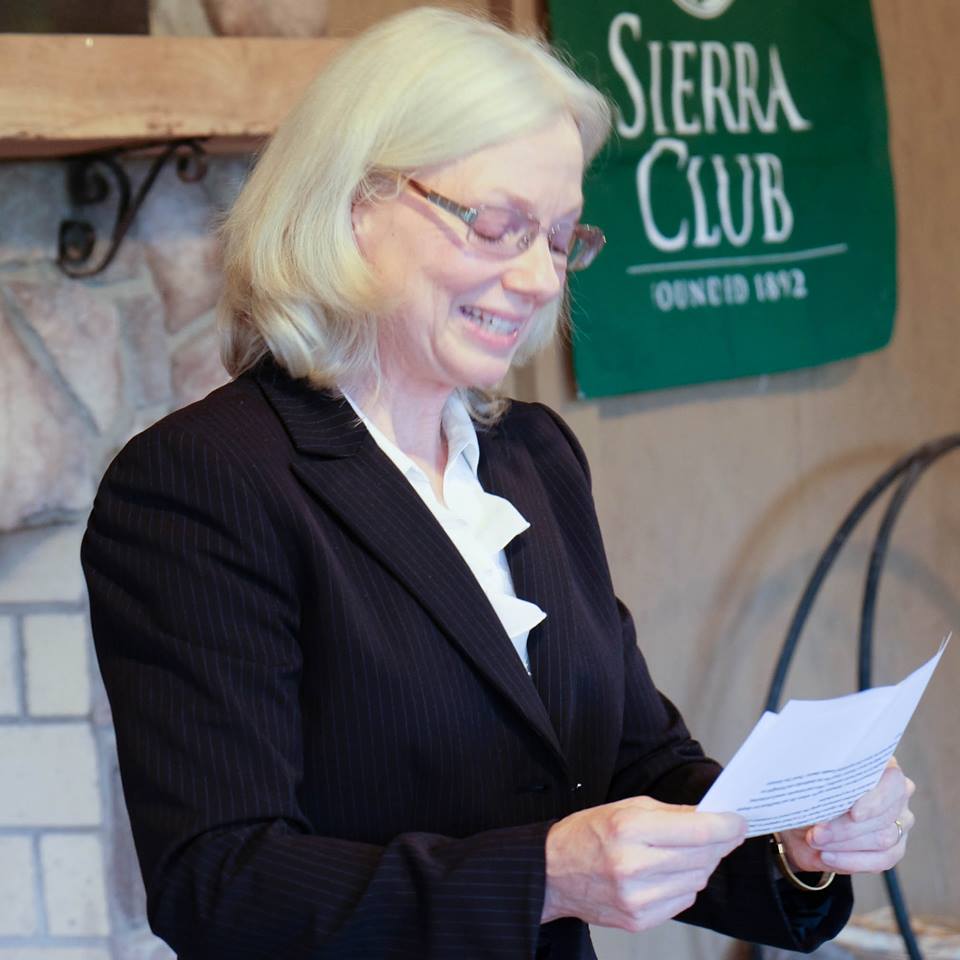 |  | By Bill Johnson and Linda MullerChapter Secretary, Rappahannock Group Chair |
This piece was originally published in the Winter 2016-2017 issue of the Old Dominion Sierran, the Sierra Club Virginia Chapter's quarterly newletter. The full issue can be found here.
To get new issues of the Old Dominion Sierran delivered to your mailbox, join the Sierra Club.
Linda Burchfiel, Rappahannock Group chair, and Michael Skiffington, Department of Mines, Minerals and Energy (DMME) director, addressed the League of Women Voters (LWV) members and the general public in an hour-long session on fracking regulations and the impact of fracking.
As a result of that meeting in October, the LWV requested Sierra Club to attend another session at a future date, to address a list of 12 questions they have on fracking.
Four RGSC interns submitted Letters to the Editor on fracking and pipelines, and all have been printed. Our interns are also researching on four additional topics.
Chris Meoli, sophomore at the University of Mary Washington (UMW) and secretary of the UMW Ecology Club wrote, “I am researching radioactivity issues associated with fracking and pipelines. Natural gas pockets contain Naturally Occurring Radioactive Materials (NORMs) such as uranium, thorium, radium, and lead. During the drilling process, these materials are mobilized and become a health issue.
“As these materials move towards the surface, they become a part of the industry waste. Subsequent spills or negligent behavior during cleanup can cause widespread contamination of these radioactive materials into the environment and local water supply. These materials persist in the environment and it is unlikely that proper clean up measures will be taken.
“Due to the recent boom in natural gas production and new intensive drilling techniques, regulators have been overwhelmed and struggle with the volume of cases and budget cuts that limit their number of inspectors.
“Specific regulations for storage of byproducts vary from state to state, making it tricky to develop clear guidelines to protect safety. Radioactive gas waste does not fall under any clear or extensive national regulatory processes, so states attempt to use regulation that does not effectively check industry and protect public health. We are formulating a position paper on this subject for review throughout the Virginia Chapter.”
The interns, along with Gerry Anderson, a Sierra Club member who teaches chemistry at Germanna Community College, are looking into FracFocus database to point out how inadequate and error-prone it is, hoping to use that research to persuade DMME not to rely on it for monitoring purposes.
DMME currently plans to obtain extracts from that database to satisfy their monitoring requirements, but the database is completely inadequate to support any meaningful analysis of the chemicals used in fracking.
FracFocus is industry developed and maintained, participation is voluntary, and data on it is submitted without any attestation that the data is complete or accurate. For example, if you query active wells in Virginia, you can get a listing of wells and the chemicals they use. There are many unnamed chemicals listed as “proprietary.” Query “proprietary,” and the results show there are no “proprietary” chemicals used, directly contradicting the previous data.
We are working with Sierra Club chapter staff to hold a rally in Richmond on January 23 on Conservation Lobby Day, at the Capitol Grounds Bell Tower, N. 9th St. and Bank St. in Richmond.
Come join us during Conservation Lobby Day and say “no frackin’ way.” For more information, go here.